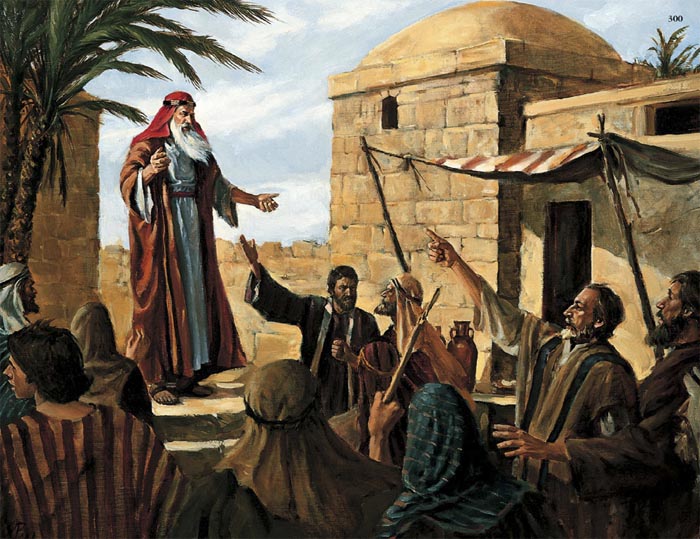Due to its position at the very start of the Book of Mormon, the story of Lehi and his family leaving Jerusalem might be the best known story in the entire book. But this post over at Scriptorium Blogorium looks at the story in a new light by asking this question: What if Lehi had a “a tendency to get big ideas that were too much for him to implement or that fizzled when he tried them”?
That makes sense, doesn’t it? It could explain why his wife [1 Nephi 5:2] and two of his sons [1 Nephi 2:11] complain that he is a “visionary man.” It’s why Nephi had to pray for his own confirmation of Lehi’s plan to leave Jerusalem. I can imagine Nephi’s prayer in that situation: “Lord, I love my father, but sometimes he gets carried away. Please let me know if this really is something you want us to do.”
Reading the Scriptorium Blogorium post got me thinking about how we view modern prophets. In this “visionary man” reading the story (which, as the author of the article linked to above states, is entirely speculative), we see that prophets make mistakes. They are not perfect. They do not have a perfect track record. This admission is rare in the Book of Mormon and is, in practice if not in doctrine, absent in modern Mormon manuals and Sunday school lessons.
There are things that modern prophets (from Joseph Smith to the present day) have said or done that give me pause. It’s taken me decades to come to terms with the fact that prophets are not perfect, yet substantiation of that fact may have been staring me in the face this whole time in the very first chapters of the Book of Mormon.
